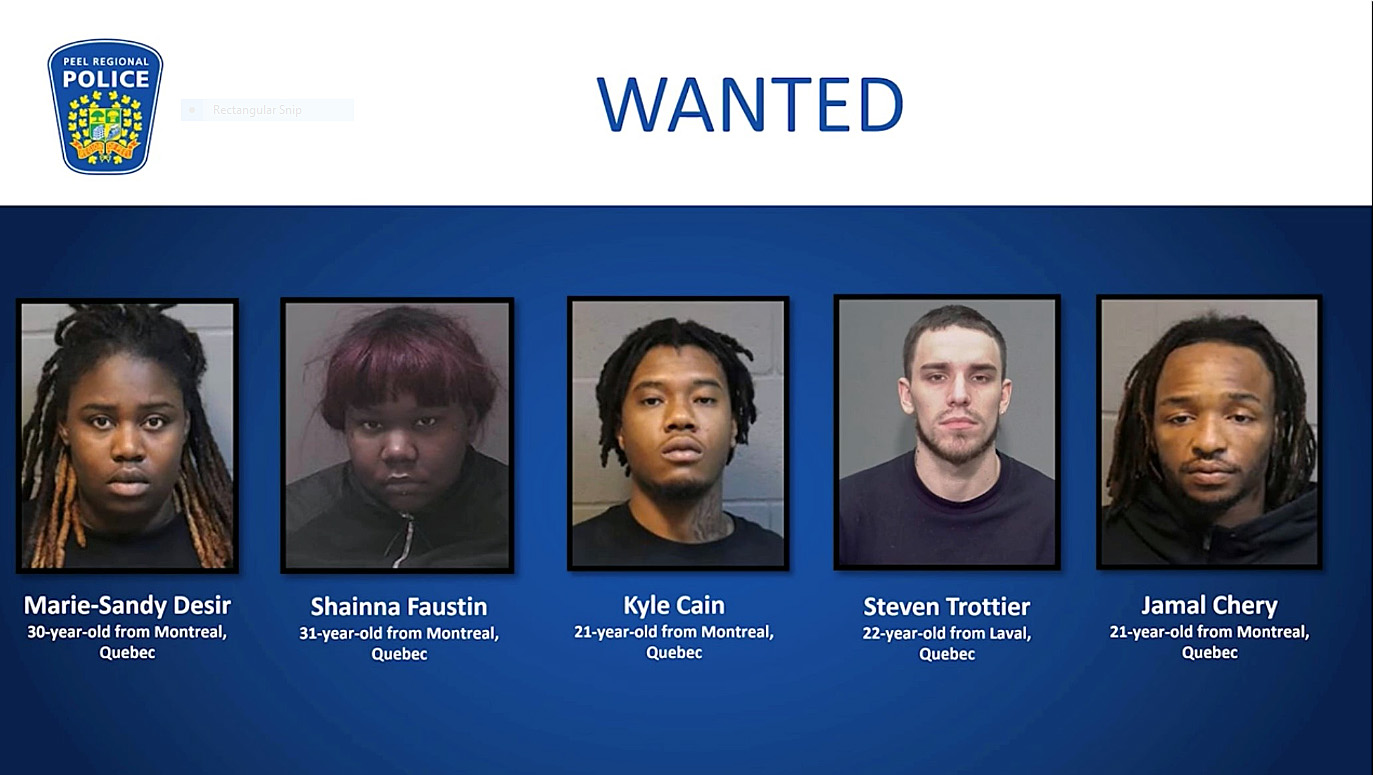Travel
Eyes pinned to Toronto byelection as safe Liberal seat teeters under Trudeau

Leslie Church seemed to know exactly what was coming as she sat down for an interview in a Toronto park Friday, three days before the byelection that could complete her journey from longtime political staffer to Liberal member of Parliament.
Seated on a bench under a small shelter a few blocks from her campaign office, Church braced herself and then laughed as she was asked whether this vote is really a referendum on Prime Minister Justin Trudeau.
“I think there’s people tempted to call it that,” she said. “But ultimately on Monday it’s a local election and Trudeau is not on the ballot. (Conservative Leader Pierre) Poilievre is not on the ballot.”
Still there is little doubt Trudeau has a part to play in the fact that this riding, which has voted Liberal with ease over the last 10 elections, is considered a close battle with the Conservatives.
Monday’s byelection was called after former cabinet minister Carolyn Bennett announced in January she was stepping down from a seat she’s held for decades.
There are seven dozen people on the ballot, which is almost a metre long. A protest group calling itself the Longest Ballot Committee stacked it with names to make a point about the first-past-the-post system being unfair. They did similar protests in byelections in Winnipeg a year ago and Mississauga in 2022.
That aside, it really is a two-horse race between Church and her Conservative opponent, Don Stewart.
Church has spent most of her career as a political staffer, including as chief of staff to multiple ministers, most recently Finance Minister Chrystia Freeland.
Stewart is a financial and marketing specialist. He previously worked for the public affairs firm owned by Jenni Byrne, a longtime Conservative campaign director and a key, if currently unofficial, adviser to Poilievre.
Stewart wouldn’t agree to an interview.
The high stakes in this byelection are evident in the number of high-profile people lending a hand.
Stewart was spotted Friday with a bit of star power: Ben Mulroney, the former CTV host and eldest son of Brian Mulroney, helped him campaign for at least the second time.
Poilievre himself knocked on doors in early May, before the campaign officially began. After he set the date for the vote, Trudeau visited Church’s campaign office and spoke to volunteers.
Multiple cabinet ministers have also showed up, including a who’s-who of those most likely to run to replace Trudeau when he decides to leave: Freeland, Treasury Board President Anita Anand, Housing Minister Sean Fraser and Industry Minister François-Philippe Champagne.
Bennett handily won the seat even in 2011 when the Liberals were decimated across the country and won just six seats in Toronto proper.
Since 2015, the Liberals have restored their fortress Toronto, winning every seat in the country’s largest city in each of the last three elections.
This byelection could be a sign that the fortress is being breached. If the Liberals lose, the pressure on Trudeau to resign will mount.
On Friday, the anti-Trudeau sentiment was clear in some corners of the riding. More than one person responded to queries with an expletive about the prime minister.
But not all those who dislike Trudeau are voting against the party.
Simon Berkowitz, a resident who identified as a longtime Liberal, said he’s already cast his ballot for Church even though he isn’t a fan of the prime minister.
“I dislike Trudeau but I dislike Poilievre more,” he said.
John McKay, the veteran Liberal MP from Scarborough—Guildwood who just announced he won’t be running in the next election, said it’s inevitable that people will see this as a vote about Trudeau.
“I think people want to make it a referendum on him and I think almost regardless of the results, it will be a interpreted that way,” he said.
Church said the Liberal leader is not an uncommon starting point for conversations on the doorstep, but the chats evolve into a broader discussion about how difficult the last several years have been.
Situated in the city’s midtown, Toronto—St. Paul’s straddles some of the city’s wealthiest enclaves and includes several middle and upper-middle class neighbourhoods. It also has an incredibly high number of renters with almost two-in-three people renting, not owning, their home.
Toronto rents have long been among the highest in Canada, and in the post-pandemic housing crunch, the problem has been exacerbated.
The Israel-Hamas war and the ensuing rise in antisemitism is also top of many minds. One in six people in Toronto—St. Paul’s identify as Jewish.
“I have a lot of families who talk about never having been this fearful,” Church said. “That’s a big issue.”
Trudeau hasn’t been given high marks for how he has responded since Hamas attacked Israel in October and Israel responded with tremendous force in Gaza. His attempt to find a middle ground between pro-Palestinian and pro-Israel groups in Canada has pleased few.
Police in most cities report a significant increase in hate crimes since October. In Toronto, more than half of hate crimes reported to police are targeting Jews.
The Conservatives circulated a letter in the riding from deputy leader Melissa Lantsman, asking voters to send Trudeau a message for doing nothing to counter the rise in hatred.
Church said she is advocating for bubble zones to keep protests away from schools and places of worship.
Some cynics even suggested the byelection’s tight contest was behind the Liberal decision last week to label Iran’s revolutionary guard as a terrorist organization. Jewish organizations have been calling for such a designation for years.
Trudeau did not answer Thursday when asked if the byelection was a factor in the decision.
Turnout is also expected to be a factor, with byelections typically bringing out far fewer voters than a general election. In 2021, turnout in Toronto—St. Paul’s exceeded 65 per cent.
Elections Canada reported that almost 10,800 people cast a ballot in advance polls, compared with 17,401 who did so in the 2021 election.








